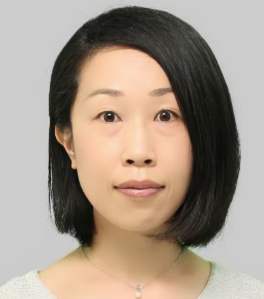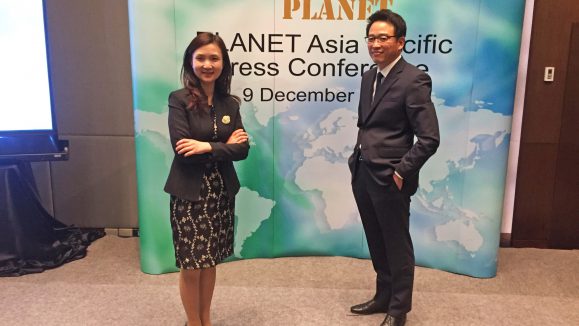A promising alternative to traditional neovascular age-related macular degeneration therapies?
The emergence of anti-vascular endothelial growth factor (anti-VEGF) biosimilars offers hope for effective and affordable treatments for neovascular age-related macular degeneration (nAMD). As these alternatives gain traction, the implications for patient care and financial accessibility are significant.
Neovascular AMD is like that unwanted guest who overstays their welcome, leading to progressive vision loss and financial heartburn for patients and healthcare systems alike.
The gold standard for treating nAMD has been anti-VEGF agents, which have been shown to halt further damage to the retina and help protect the remaining vision. However, the costs associated with these treatments can be eye-watering. Enter the biosimilars, promising alternatives that offer the same benefits but at a (potentially) lower price tag.
The scoop on anti-VEGF biosimilars
A recent systematic review published in the esteemed Cochrane Database of Systematic Reviews (CDSR) shines a spotlight on the safety and efficacy of anti-VEGF biosimilars compared to their reference products.* It sought to find out whether anti-VEGF biosimilars work as well as the original anti-VEGF medicines at preventing further loss of vision in people with nAMD, and whether they could cause similar unwanted effects.
“Although intravitreal anti-VEGF therapy is an effective treatment option that helps prevent vision loss or improve visual acuity in people with neovascular AMD, treatment imposes a significant financial burden on patients and healthcare systems,” said the paper.
The use of biosimilars may help reduce costs and increase patient access to effective biologic medicines that have similar safety levels to the original drugs.
“The findings from our Cochrane review suggest that anti-VEGF biosimilars for neovascular AMD are comparable in safety and efficacy to their reference products,” shared co-author Dr. Tomiko Sunaga, associate professor from the Division of Applied Pharmaceutical Education and Research, Hoshi University, Japan. “This is crucial as it supports the potential use of biosimilars as a viable, cost-effective alternative for managing this condition,” she asserted.
A deep dive into the data
The review analyzed data from nine parallel-group multi-center randomized controlled trials that enrolled 3,814 eyes from adults aged 50 and older—all suffering from active primary or recurrent choroidal neovascularization lesions secondary to nAMD. The studies compared ranibizumab and aflibercept to several biosimilars designed to mimic them. Here are some of the findings:
Vision outcomes: Participants treated with anti-VEGF biosimilars did not experience significant deterioration in vision compared to those who received the reference agents.
“This is great news for doctors and patients,” said Prof. Dr. Mae-Lynn Catherine Bastion, a vitreoretinal surgeon at the National University of Malaysia. “The results indicate that there is strong evidence that vision does not deteriorate when patients receive biosimilar agents for treatment of nAMD,” she added.
In fact, the authors report “high-certainty evidence that participants treated with anti-VEGF biosimilars had little to no difference in change from baseline in best corrected visual acuity at 8 to 12 weeks compared with participants who received reference anti-VEGF agents.”
Quality of life: At 24 to 48 weeks, the impact of treatment on vision-related quality of life (VRQoL) showed no notable differences between groups.
Safety and adverse events: There was little to no difference between anti-VEGF biosimilars and the original anti-VEGF medicines for serious ocular adverse events, which were seen in approximately 12 to 14 people out of every 1,000 treated.
Financial implications: The economic implications of introducing anti-VEGF biosimilars into treatment regimens are enormous. These biosimilars present a potential lifeline for patients and healthcare systems struggling with financial burdens.
If these biosimilars gain traction, patients may soon find relief from the weight of hefty treatment costs, leading to improved access to essential eye care.
“Given the high costs associated with long-term treatment of neovascular AMD, biosimilars could significantly reduce financial barriers and improve access to care for those affected worldwide,” said Dr. Sunaga.
More than just a hunch
While the current evidence paints a promising picture, there’s always room for even more certainty. As any good scientist will tell you, further studies are needed to dive deeper into the nitty-gritty.
“Continued research comparing biosimilars with branded drugs is important to understand better their equivalence in long-term safety and effectiveness, particularly to monitor for rare adverse events,” said Dr. Sunaga. “Additionally, there is a need for more comprehensive data on certain biosimilars, especially those compared with aflibercept,” she noted.
Here are some of the reasons why further research is needed:
Long-term efficacy and safety: The studies conducted thus far span only a year. More extended research is essential to monitor long-term outcomes and catch any adverse events that might occur.
Diverse populations: Dr. Bastion suggested that more patient populations of different ethnic groups are needed.
Bias reduction: “Research that is not industry-sponsored to reduce potential bias will be even better, although the authors reported a low level of bias in the studies selected,” added Dr. Bastion.
Cost-benefit analyses: Conducting comprehensive cost-benefit analyses on these biosimilars could help patients make informed decisions regarding their treatment options.
A bright future ahead for vision care
Amid the ever-evolving landscape of treatments for nAMD, anti-VEGF biosimilars could very well turn out to be promising alternatives to traditional anti-VEGF therapies. Their comparable safety and efficacy, combined with the potential for cost savings, provide a ray of hope for patients and healthcare providers alike.
While the study brings us one step closer to ensuring that patients can enjoy life’s vibrant vistas, there is still a need for further studies.
Editor’s Note: A version of this article was first published on PIE magazine Issue 32.
Reference
- Sunaga T, Maeda M, Saulle R, et al. Anti-vascular endothelial growth factor biosimilars for neovascular age-related macular degeneration. Cochrane Database Syst Rev. 2024;6(6):CD015804.





